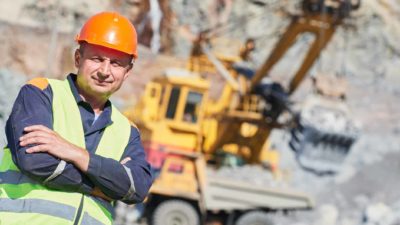I don't own any S&P/ASX 200 Index (ASX: XJO) lithium shares.
I'm convinced that fossil fuel-powered vehicles and buildings are on their gradual way out. But I'm not convinced that lithium-ion batteries are the long-term solution to the world's changing energy needs.
Now, there were certainly times I wish I had taken the plunge. Like for most of 2022 when the majority of lithium stocks were going gangbusters.
That came as blistering demand for the battery-critical metal exceeded the market's shorter-term supply capacities. And it saw the lithium carbonate price hit record highs of some CNY600,000 per tonne last November. It also saw some ASX 200 lithium shares more than double in value in a matter of months.
But 2023 has been a different story.
Global lithium supplies have increased, with ever more projects in the pipeline, while demand growth has slowed. And lithium prices have come tumbling down to some CNY140,000 per tonne today.
Which means I've been happy to sit on the sidelines this year.
Here's how these leading ASX 200 lithium shares have performed over the past 12 months:
- Pilbara Minerals Ltd (ASX: PLS) shares are down 26%
- Core Lithium Ltd (ASX: CXO) shares are down 74%
- Allkem Ltd (ASX: AKE) shares are down 38%
- IGO Ltd (ASX: IGO) shares are down 44%
Now, following this sell-down, there might be a rebound ahead for these stocks in the shorter to medium term.
But as I said up top, the biggest thing that's kept me from investing in ASX 200 lithium shares is my belief that lithium-ion batteries are unlikely to be the long-term solution to the world's ongoing pivot away from fossil fuels.
Which brings us to Sweden.
Will this Swedish company rain on the ASX 200 lithium share party?
Sweden?
That's right.
As The Australian Financial Review reports, Swedish-based Northvolt has developed a potentially revolutionary new sodium-ion battery for home and grid storage.
Backed by Volkswagen, BlackRock and Goldman Sachs, Northvolt's cutting-edge battery technology has increased the amount of energy produced from its sodium-ion battery to 160 watts per kilogram.
That's close to what grid storage lithium batteries produce. And it could upend the long-term demand picture for the metal, throwing up more headwinds for ASX 200 lithium shares.
Not only are sodium-ion batteries cheaper to produce but they're also reported to perform better at extreme temperatures.
According to Northvolt CEO Peter Carlsson (quoted by the AFR):
The combination of thermal capability, cost, and the sustainability aspect makes us very bullish about the possibility of the technology… This is a really large opportunity for areas like the Middle East, Africa and India.
Carlsson estimated the new sodium-ion battery tech could be worth tens of billions of dollars.
But ASX 200 lithium shares don't need to run for the hills quite yet.
Northvolt aims to have sample batteries to customers in 2024, but full-scale production isn't likely until around 2030.
And while the new technology could take a sizeable bite out of future lithium demand for baseload storage batteries, EVs will likely still run predominantly on lithium-ion batteries for now.
Unless, of course, hydrogen-combustion technology steps in to steal the show.









